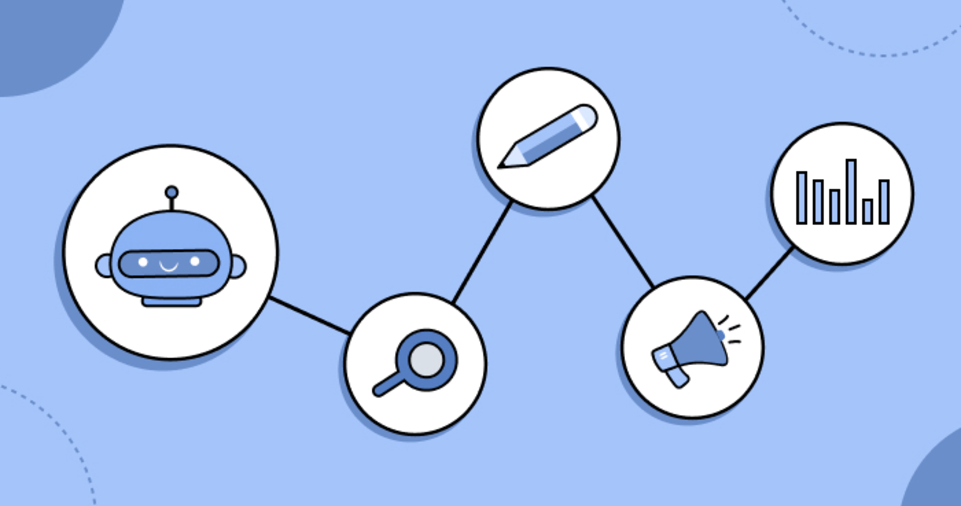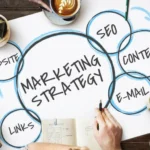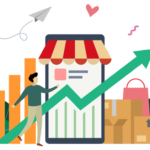Artificial Intelligence (AI) to Streamline Your Business: In today’s fast-paced digital landscape, businesses must continuously evolve to stay competitive.
One of the most effective ways to enhance efficiency, reduce operational costs, and improve decision-making is through the implementation of Artificial Intelligence (AI).
AI-powered tools and technologies are transforming industries by automating repetitive tasks, optimizing customer service, improving marketing strategies, enhancing cybersecurity, and much more.
Whether you run a small business or a large enterprise, AI can help you achieve higher productivity while minimizing human errors.
From chatbots and predictive analytics to AI-driven marketing automation, the applications of artificial intelligence in business are vast and continuously expanding.
By leveraging AI, companies can streamline their operations, enhance customer experiences, and gain valuable insights that drive growth.
In this detailed guide, we will explore the various ways AI can be integrated into your business, providing you with actionable insights and tools to stay ahead in the competitive market.
Let’s dive in and discover how AI can revolutionize the way you operate your business.
Automate Repetitive Tasks with AI
AI-Powered Email Automation
One of the easiest and most effective ways to integrate AI into your business is by automating repetitive tasks, starting with email management.
AI-powered tools such as Mailchimp, HubSpot, and ActiveCampaign can handle email scheduling, personalization, and even automatic responses.
These platforms analyze customer behavior and engagement patterns to optimize email delivery times and content, ensuring that messages reach the right audience at the right time.
This eliminates manual efforts, increases efficiency, and improves email marketing effectiveness.
Robotic Process Automation (RPA) for Data Entry
Data entry is a time-consuming and error-prone task. Robotic Process Automation (RPA) tools like UiPath, Blue Prism, and Automation Anywhere use AI algorithms to automate data entry, reducing manual errors and saving time.
These tools can extract data from documents, emails, and databases, categorize it, and input it into relevant systems without human intervention.
AI Scheduling Assistants
AI-powered scheduling assistants like Calendly, Clara, and x.ai streamline appointment booking by analyzing calendar availability and suggesting the best meeting times.
They can even coordinate meetings across multiple time zones, send reminders, and reschedule appointments automatically.
This minimizes back-and-forth communication and enhances productivity.
Enhance Customer Service with AI
AI Chatbots and Virtual Assistants
Customer service is a critical aspect of any business, and AI chatbots are revolutionizing the way businesses interact with their customers.
AI-powered chatbots like Drift, Intercom, and Zendesk AI provide instant responses to customer inquiries, reducing response time and improving user experience.
These bots can handle FAQs, process orders, and even troubleshoot common issues without human intervention.
AI-Driven Sentiment Analysis
Understanding customer emotions and feedback is essential for improving services.
AI sentiment analysis tools like MonkeyLearn and Lexalytics analyze customer reviews, social media mentions, and surveys to determine public sentiment toward your brand.
Businesses can use these insights to enhance their products and services, addressing customer concerns proactively.
Personalized Customer Support
AI-driven CRM systems like Salesforce Einstein and HubSpot CRM use machine learning algorithms to analyze customer data and provide personalized support.
These systems can predict customer needs, suggest relevant products, and tailor interactions based on past behavior, leading to higher customer satisfaction and retention.
Optimize Marketing Strategies with AI

AI-Powered Content Generation
Creating engaging content is a challenge for many businesses. AI-powered tools like Copy.ai, Jasper, and Writesonic generate high-quality blog posts, social media captions, and ad copy within minutes.
These tools analyze industry trends, target audience preferences, and SEO guidelines to craft optimized content that drives traffic and engagement.
AI-Driven Ad Campaign Optimization
AI can significantly enhance paid advertising campaigns by analyzing user behavior and optimizing ad targeting.
Google Ads AI and Facebook’s AI-powered ad platform automatically adjust bids, test different ad creatives, and optimize audience targeting to maximize conversions and ROI.
Predictive Analytics in Marketing
AI tools like HubSpot and Marketo use predictive analytics to forecast customer behavior, helping businesses make data-driven marketing decisions.
These tools analyze past customer interactions, identify trends, and recommend the best marketing strategies to increase lead generation and sales.
Improve Decision-Making with AI Analytics
Predict Customer Behavior
AI-powered predictive analytics tools like IBM Watson and RapidMiner analyze vast amounts of data to identify customer behavior patterns.
By leveraging machine learning models, businesses can predict customer preferences, buying patterns, and potential churn risks, allowing them to take proactive measures.
Market Trend Analysis
AI-driven business intelligence platforms like Tableau and Power BI provide real-time insights into market trends, helping businesses stay ahead of the competition.
These tools gather data from multiple sources, visualize key metrics, and offer actionable recommendations for business growth.
Automated Reporting and Insights
AI analytics tools can automate reporting processes, eliminating the need for manual data compilation.
Platforms like Domo and Sisense generate real-time reports and dashboards, enabling businesses to make informed decisions based on accurate data.
Enhance Cybersecurity with AI

AI-Based Threat Detection
Cybersecurity is a growing concern for businesses, and AI plays a crucial role in identifying and mitigating threats.
AI-powered security platforms like Darktrace and CrowdStrike use machine learning to detect unusual network activity and prevent cyberattacks in real time.
Fraud Prevention and Risk Management
AI tools like Feedzai and DataVisor analyze transaction patterns and detect fraudulent activities before they cause financial losses.
These systems continuously learn from new fraud patterns, making them more effective over time.
Automated Security Monitoring
AI-driven security monitoring tools can analyze vast amounts of data to identify vulnerabilities and potential threats.
Platforms like Splunk and Palo Alto Networks use AI to provide real-time security alerts and automated threat responses.
Optimize Supply Chain & Inventory Management
AI Demand Forecasting
AI-powered demand forecasting tools like SAP Integrated Business Planning and Netstock analyze historical sales data, market trends, and external factors to predict inventory demand accurately. This prevents stock shortages and reduces excess inventory costs.
AI-Powered Logistics Optimization
AI can optimize logistics and supply chain operations by analyzing routes, traffic patterns, and delivery times.
Platforms like ClearMetal and Route4Me use AI to improve delivery efficiency and reduce transportation costs.
Warehouse Automation
AI-driven robotics and automation tools streamline warehouse management by optimizing storage space and automating order fulfillment.
Technologies like Amazon’s AI-powered warehouses use robots to sort, package, and ship products efficiently.
ALSO READ: How to Start a Small Business on a Budget
Conclusion
Artificial intelligence is no longer a futuristic concept—it is a practical tool that businesses of all sizes can leverage to enhance efficiency, reduce costs, and drive growth.
From automating repetitive tasks to improving customer service, optimizing marketing, and strengthening cybersecurity, AI offers countless opportunities for business transformation.
By integrating AI-driven tools and strategies, businesses can streamline operations, make data-driven decisions, and stay ahead in an increasingly competitive market.
The key is to start small, experiment with AI solutions, and continuously refine them to achieve maximum efficiency and profitability.
Are you ready to harness the power of AI for your business success?







